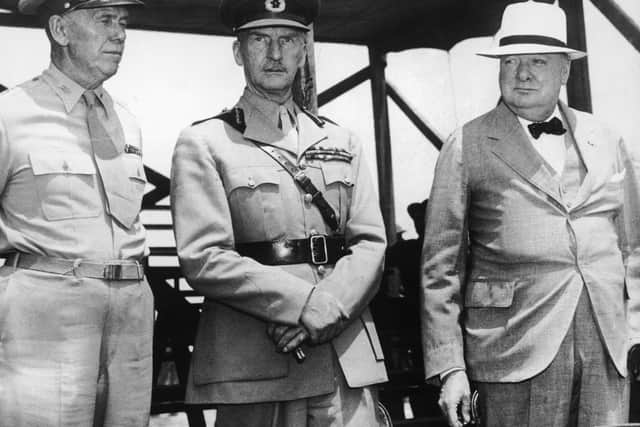King’s Speech 2023 | What is the significance of the Gold Stick and what does it mean for Princess Anne?
and live on Freeview channel 276
The 2023 King's Speech has now concluded, with King Charles III's address during the State Opening of Parliament. He announced measures on energy security, housing reforms, and plans to create a smoke-free generation of Brits while visiting the House of Commons. As with many royal occasions, this event included an element of pomp and pageantry, with the traditional Black Rod ceremony taking place before King Charles III's speech.
The British Monarchy has a tradition of appointing a Gold Stick-in-waiting, a position currently held by Princess Anne in recognition of her unwavering support of the Royal family. This is one of the most significant roles within the Monarchy as it involves serving as the official 'bodyguard' of King Charles III during his reception at the Houses of Parliament.
Advertisement
Hide AdAdvertisement
Hide AdIn the British royal and military context, the term "Gold Staff" or "Gold Stick" typically refers to an honorary position held by a high-ranking military officer. The Gold Stick in Waiting is an appointment within the British Royal Household, usually held by a senior army officer, who assists the Sovereign on ceremonial occasions.
The Gold Stick's role includes protecting the Sovereign during certain state and military events, as well as performing various ceremonial functions. The position is mostly symbolic and ceremonial, and it originated from historical military traditions and the need for a trusted military officer to safeguard the monarch during public appearances.
The term "Gold Stick" comes from the ornate gold ceremonial staff that the officer carries, symbolizing their office. This staff is often elaborately designed and serves as a visual representation of the authority and status of the position. While the specific duties of the Gold Stick may vary depending on the occasion and the reigning monarch's preferences, the role remains an essential part of the pageantry and protocol associated with the British monarchy.
Who has held the Gold Stick previously?


Sir John Dill was a prominent British Army officer of the early 20th century who served as the Gold Stick in Waiting. He had a remarkable military career, eventually attaining the rank of Field Marshal and acting as the Chief of the Imperial General Staff during World War II. Dill played a significant role in coordinating military strategy and operations during the war, and his contributions to the Allied victory were pivotal.
Advertisement
Hide AdAdvertisement
Hide AdSir Gerald Templer was another notable figure who held the position of Gold Stick in Waiting. He went on to become the Chief of the Imperial General Staff, gaining recognition for his leadership during the Malayan Emergency, a critical period in the British Empire's history. Templer's effective counterinsurgency strategies and his commitment to building trust and rapport with the local population were instrumental in suppressing the communist insurgency in Malaya.
Field Marshal Sir Richard Hull, another distinguished military officer, also held the position of Gold Stick in Waiting. He later became the Chief of the General Staff in the early 20th century. Hull played a crucial role in the leadership of the British Army, contributing to strategic planning and military operations during a time of significant geopolitical challenges and conflicts.
Comment Guidelines
National World encourages reader discussion on our stories. User feedback, insights and back-and-forth exchanges add a rich layer of context to reporting. Please review our Community Guidelines before commenting.
